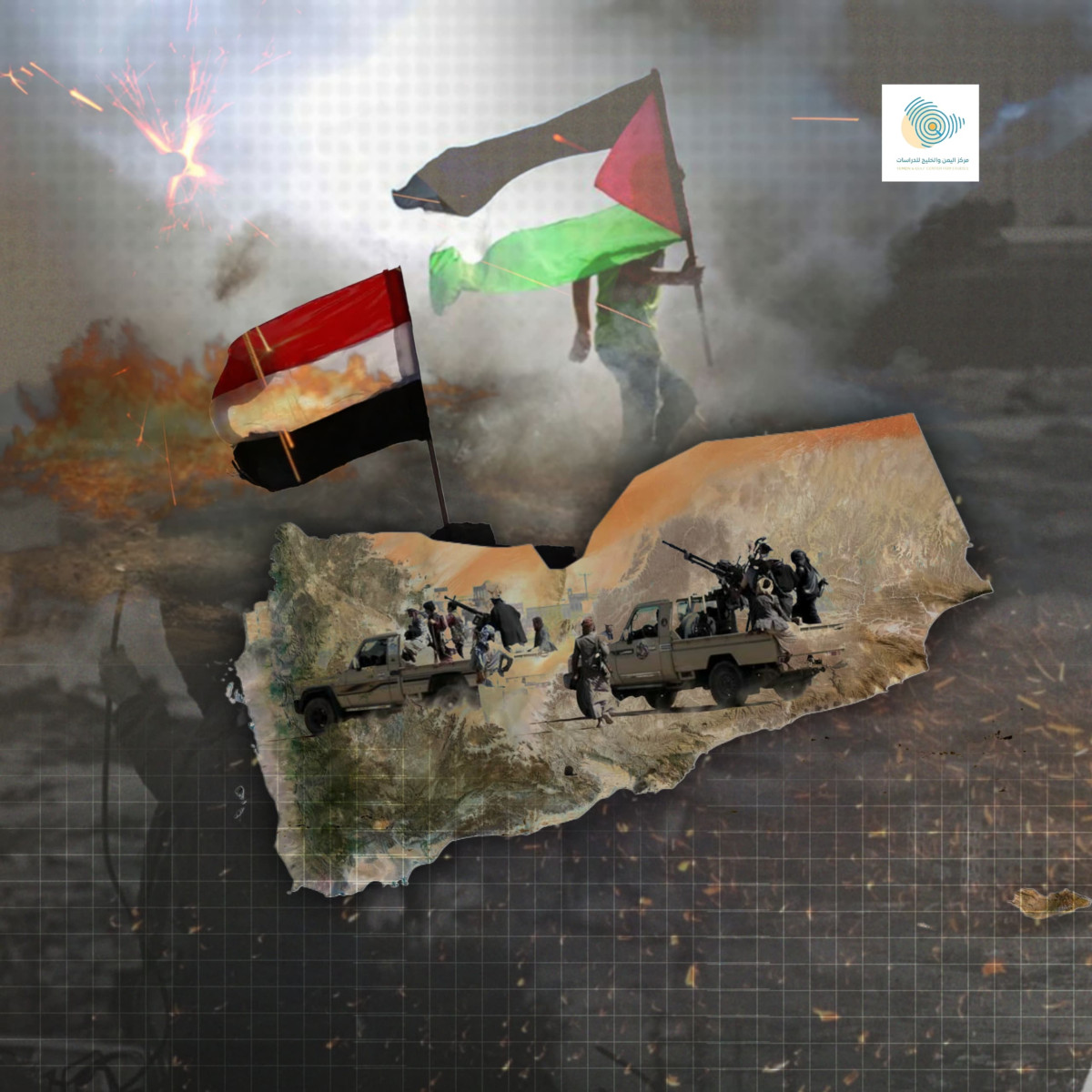Implications of Yemeni Front Amidst Gaza Ceasefire
- 05 Feb 2025


The primary justification employed by the Houthi Group for its attacks in the Red Sea region, as well as its strikes against various targets in Israel from November 2023 to the present, has been framed around the concept of “unity of arenas” and expressed solidarity with Palestinian factions in the Gaza Strip. However, following the announcement on January 15, 2025, by mediators that a multi-phase ceasefire agreement had been reached between Hamas, Palestinian factions, and Israel, the implications of this agreement for the Yemeni front became a focal point of strategic discourse. In particular, questions arose regarding the potential repercussions of the Houthi-Israeli escalation. This paper seeks to explore the outcomes of this escalation within the context of the ceasefire agreement, particularly focusing on the Houthis’ reaction to it, as well as the broader shifts prompted by the recent U.S. decision under President Donald Trump’s administration to reclassify the Houthis as a foreign terrorist organisation.
First: The Houthis’ Response to the Gaza Ceasefire Agreement
The Houthis’ response to the ceasefire agreement in the Gaza Strip was shaped by several key elements, which can be analysed through the following points:
Second: Key Determinants Shaping the Escalation Trajectory on the Yemeni Front
Although the Houthis officially welcomed the ceasefire agreement in the Gaza Strip and the subsequent developments, the trajectory of escalation on the Yemeni front will remain influenced by a series of key determinants, which can be analysed through the following factors:
Overall, it can be concluded that while the ceasefire agreement in the Gaza Strip may contribute to a relative calm on the Yemeni Front, several other factors and considerations are likely to drive further escalation. Chief among these is the evolving Israeli perception of the Houthis, as the group has increasingly been viewed as a significant threat, prompting more aggressive targeting strategies. Additionally, the outcomes of the ceasefire agreement and the potential for Israel to breach it could provoke further escalation on the Yemeni Front. Compounding these risks is the recent American decision to reclassify the Houthis as a terrorist organisation.
(1) المتحدث باسم الحوثيين يعلق على وقف إطلاق النار بغزة، روسيا اليوم، 15 يناير 2025، متاح على:
https://linksshortcut.com/rGVjh
(2) الحوثي يعلق على اتفاق وقف إطلاق النار في غزة.. ويحذر إسرائيل، سكاي نيوز، 17 يناير 2025، متاح على:
https://linksshortcut.com/wJBVu
(3) الحوثيون يفرجون عن طاقم سفينة غلاكسي ليدر بوساطة عمانية، العربي الجديد، 22 يناير 2025، متاح على:
https://linksshortcut.com/yiuiB
(4) Trump designates Yemen's Houthis as a 'foreign terrorist organization', Reuters, Jan, 23, 2025, available at:
https://www.reuters.com/world/white-house-says-yemens-houthi-movement-designated-foreign-terrorist-2025-01-22/
(5)Israel launches 'significant' military operation in West Bank, at least 9 Palestinians killed, Reuters, Jan, 21, 2025, available at:
https://www.reuters.com/world/middle-east/israeli-military-begins-operation-west-bank-city-jenin-2025-01-21/
(6) الحوثي تعاون مع القاعدة وقدراته تفاقمت، العربية، 27 سبتمبر 2024، متاح على:
https://linksshortcut.com/cZiZE
The stated views express the views of the author and do not necessarily reflect the views of the Center or the work team.
Comments